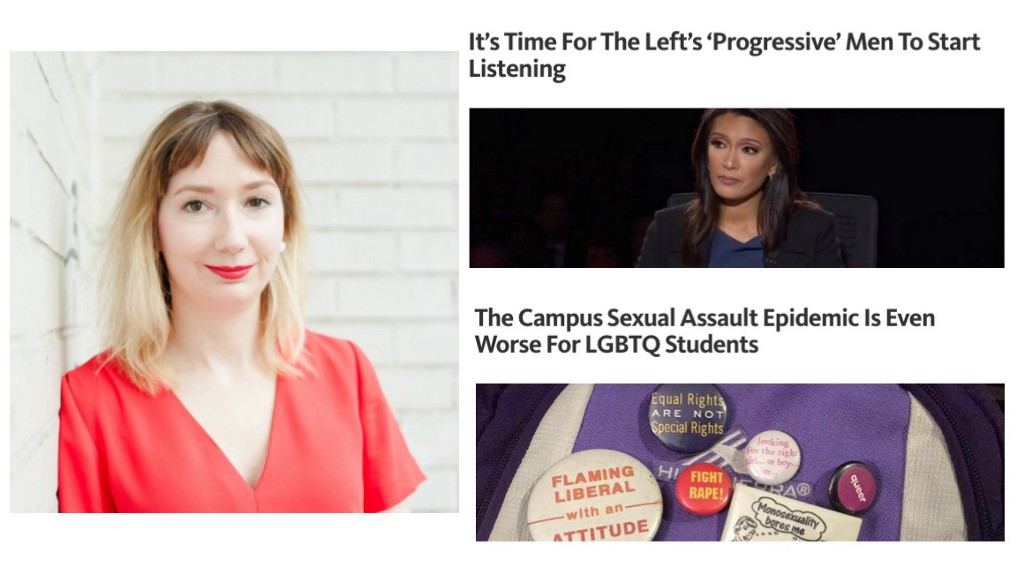
‘I hope my writing will call people to action.’
I n this age where truth has been twisted, resisted, and relentlessly bastardized, Casey Quinlan reminds us of the power of facts. Not “alternative facts.” Not sorta-kinda half-truth facts. Real, cold, hard facts.
A reporter of impeccable integrity, Casey understands how to ground her pivotal stories — be it about faux progressive men, the medical industry’s poor treatment of marginalized groups, or an epidemic of sexual assault against LGBTQ college students — in estimable, vetted research and meticulous interviewing.
It’s no wonder her work has appeared at such illustrious publications as The Atlantic and ThinkProgress — and no wonder why we’re thrilled she’s made a home at The Establishment.
As The Washington Post intones in its tagline, “Democracy dies in darkness.” Journalism — under siege to an astonishing degree — is one of the most powerful bastions we have against the erosion of democratic principles. Thanks to fact-driven, dogged reporters like Casey, there’s hope for us yet.
Below, Casey shares her thoughts on why not paying writers is bunk, her favorite fish and mixed drink, and the Frasier character she feels a special kinship with.

You can generally find me writing in a crowded newsroom or DC restaurant on a laptop while glowering.
The writers that have most influenced my life are Joyce Carol Oates, Rebecca Solnit, Miranda July, Roxane Gay, Rebecca Traister, Jia Tolentino, Nikole Hannah-Jones, and Patricia Engel.
The TV character I most identify with is Lilith from Cheers and Frasier.
I think “paying writers in exposure” is something LGBTQ writers, femme writers, and writers of color are asked to do too much of.
The coolest thing I’ve bought from money made writing is a desk to write on (it’s a beautiful old desk painted turquoise).
My most listened to song of all time is a split between “A Case of You” by Joni Mitchell and “Feeling Good” by Nina Simone.
My 18-year-old self would feel happy about where I am today.
I like writing for The Establishment because editors are comfortable with LGBTQ issues and sex positivity, and they are always interested in making your pieces the best they can be.
If I could only have one type of food for the rest of my life it would be scallops and risotto.
If I could share one of my stories by yelling it into a megaphone in the middle of Times Square, it would be “Dear Straight Allies, Please Don’t Forget the Harassment of Queer Women.”
Dear Straight Allies, Please Don’t Forget The Harassment Of Queer Women
If I could give the amazing people who sponsor stories anything in the world to express my gratitude, it would be a gin and tonic and conversation about their interests.
The story I’m working on now is about Democrats who are supporting a litmus test for abortion.
The story I want to write next is about what middle and high schools could do to protect students against sexual assault.
Writing means this to me: I write to better understand how our culture and government institutions fail marginalized groups of people and bring attention to people who are working on mitigating these issues and looking for solutions. I hope my writing will call people to action who otherwise wouldn’t be aware of these problems.
If I could summarize writing in a series of three GIFs, it would be:
Looking For A Comments Section? We Don’t Have One.


